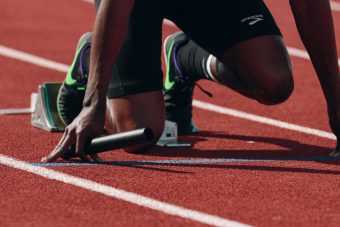
This year, Paris will host over 10,000 athletes and numerous visitors for the 2024 Olympic Games.
An event of this scale requires large resources and energy. Still, the organizers have ensured that its ecological footprint will be as small as possible, thanks to the circular economy.
As stated on the official website of the 2024 Olympic Games in Paris, the organizers first calculated the material footprint of the Games, i.e. the sum of all resources that must be mobilized for the event to occur.
To acquire these supplies, the organizers implemented a responsible purchasing strategy, defined in 2019. Thanks to this strategy, 90 per cent of the six million elements used will be used by suppliers and partners after the Games. In comparison, the Organizing Committee of the Olympic Games will handle the remaining 10 per cent.
When procuring all the required elements – such as seats for spectators, tents, beds, tables, flags, sports equipment, etc. – the organizers gave preference to suppliers that meet several environmental standards.
Recycling is also considered when it comes to the floors that will be used during the Games, i.e. over 33,000 m² of sports flooring will contain about 35 per cent recycled materials and be 100 per cent recyclable.
In the hospitality sector, the 2024 Games have pledged to reduce single-use plastics by 50 per cent compared to the 2012 Games held in London.
More:
- ABOVE-NORMAL RAINFALL FORECAST FOR GREATER HORN OF AFRICA FOR JUNE TO SEPTEMBER
- TWO YEARS OF REPOWEREU: STRENGTHENING EUROPE’S ENERGY RESILIENCE
- CLEAN ENERGY IS BOOSTING ECONOMIC GROWTH
Other measures for reducing the ecological footprint of the Olympic Games
Instead of buying new sports equipment, the 2024 Olympic Games have prioritized renting. Of the two million required items, three-quarters will be borrowed from sports associations. 75 per cent of electronic equipment, such as televisions, computers, and printers, as well as 100 per cent of stands, tents, and bungalows, will also be rented.
Another environmental measure, which aims to reduce the need for construction and entails using 95 per cent of existing buildings and infrastructure, will be applied at the Games in Paris.
The Olympic Committee said that the Games are structured to use the existing public transport network, and more than 400km of new bicycle paths will be built to reduce transport emissions.
Furthermore, the measures for responsible food management include doubling the proportion of plant-based ingredients in meals, sourcing ingredients from local producers and reducing food waste by better estimating the required quantities, redistributing or composting.

